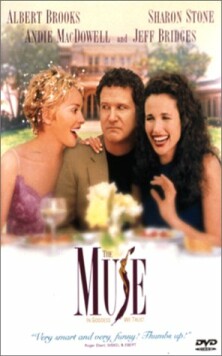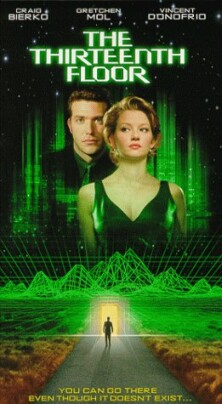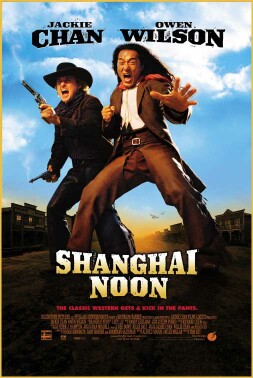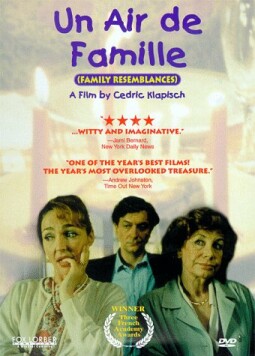Muse, The
Albert Brooks, more than any other Hollywood writer/director, is able to
write satirically about Hollywood without at the same time succumbing to the
charm of its own outrageousness. In The Muse he has had the particularly
clever idea of casting Sharon Stone, Hollywood’s premiere sex symbol of the
moment, as a sexless “Muse” (“All the women in my family are muses,” she
says)—which is to say what Hollywood men really lust after,
sacrifice for (“think of it as an investment”) and pursue at all costs, namely
success.
The film begins with Brooks, as the screenwriter Stephen Phillips, getting a
humanitarian award. When his daughter asks him what a humanitarian is, he
replies: “Someone who’s never won the Oscar”—though he has, he
reminds everyone, been nominated. But from being someone who just has failed of
the heights, he becomes one cast down into the depths when his much younger and
snotty boss at Paramount, Josh (Mark Feuerstein), tells him that he is “losing
his edge” as a writer and, with insufferable condescension, sacks him.
There follows a funny scene in which the suddenly unemployed writer thinks he
is meeting with Steven Spielberg and is instead shunted off to a cubicle manned
by “Stan Spielberg” (Steven Wright), alleged to be Steven’s brother, in a giant
office building presumably full of faux Spielbergs. Stan doesn’t like Phillips’s
work very much. Then he learns from his successful friend, Jack (Jeff
Bridges)—who has won the Oscar—of the alleged muse, called
Sarah Little, who might, if he brings her gifts and pampers her, consent to be
his muse. Brooks is hilarious in the role of the little man, out of work
and desperate, who has to judge how much to spend on a gift, how much to agree
to in pampering her, while at the same time furiously calculating what he might
stand to gain in return.
“So it’s not like Rumplestiltskin?” he says to her. “I don’t wake up with a
script?”
Somewhat surprisingly, Miss Stone is just as good as the Muse, who is totally
seductive of Phillips’s credulity without at all tempting his libido. “I have to
be careful,” she tells him conspiratorially. I could anger the gods. . .You
don’t know what wrath is till you’ve seen Zeus get pissed.” Zeus, of course, is
her father.
“The one with the drinking problem?” asks Phillips.
“All the gods drink,” she says.
Also very funny is Phillips’s jealousy of his wife, Laura (Andie MacDowell),
when she strikes up a friendship with the Muse. The latter, without any bribing
proceeds to inspire her to become a cookie tycoon like Mrs Fields (“Isn’t she
divorced?” asks her husband). In fact, in this movie even those tired old
staples of the Hollywood satire, the star cameos, are funny. James Cameron, the
director of Titanic, muses over the Muse’s advice to “stay out of the
water” while Martin Scorsese wants to run past her his idea for remaking
Raging Bull with a “really thin” actor.
Funniest of all, however, is the cheesiness of the idea that our hero
attributes to the Muse’s inspiration and that he (and everybody else) thinks is
so great: Jim Carey (who does not appear) inherits an aquarium in which
everything is falling apart and the fish are dying. His misadventures in
attempting to open the place to the public are finally resolved when the place
turns out to be built on an oil deposit and Carey and his family turn into the
Beverly Hillbillies. The extent to which everyone is prepared to believe in this
lame comic conceit is cleverly shown to be analogous to the way in which
everyone is prepared to believe in the Muse—who turns out to be an escaped
mental patient from Cincinnati.
“But the muse part is correct, right?” says the desperate hero to the nurse
and doctor who have come to take her away. “Should I take your laughter as a
no?”
The nurse says: “Mr Phillips, this is Hollywood. I wouldn’t beat yourself up
for believing her. People here believe anything. . .”
“But she fits the Muse profile perfectly,” he says, shaking his head. Yes, he
knows that people here believe anything, but that doesn’t stop him from
believing anything too. It is the true spirit of Hollywood satire, which
invariably fails in the end because it is unable to put any real distance
between itself and Hollywood. But Albert Brooks comes as close to bringing it
off as anyone ever has.
Discover more from James Bowman
Subscribe to get the latest posts to your email.





